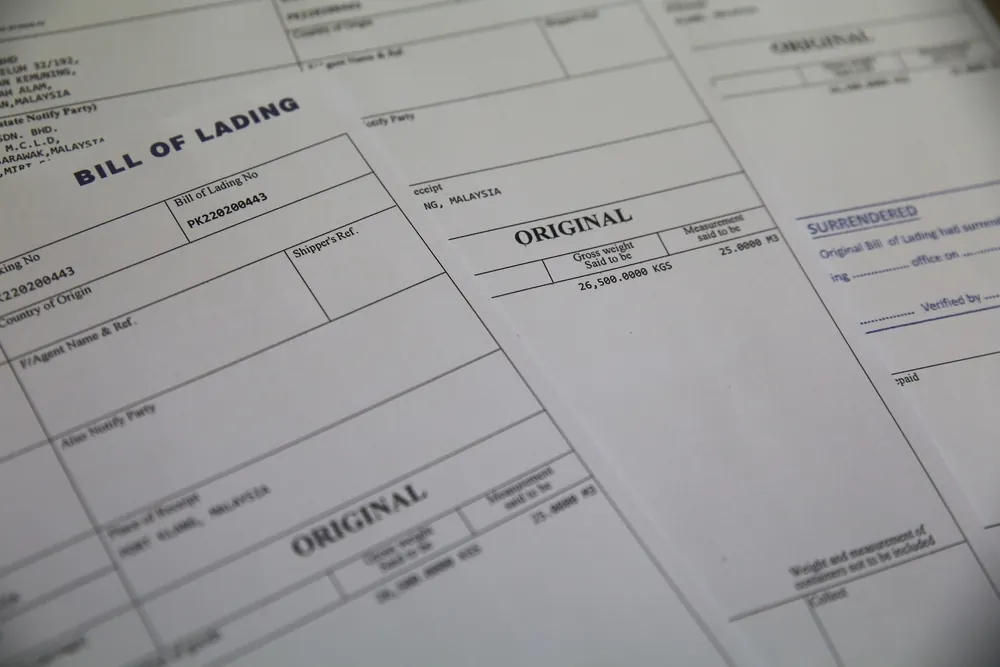How to Avoid Billing Adjustments
If there’s one area where things can go awry quickly for shippers, it’s billing adjustments. The time and effort that go into developing a shipping strategy, planning a budget, and managing it can all be in vain when additional costs, in the form of billing adjustments, keep occurring at the completion of your shipments. Before we delve into the details of how to avoid billing adjustments, let’s first discuss how they occur, who issues them, and why.
What Are Billing Adjustments?
Knowing how to avoid billing adjustments is easier when you know what they are, what to look out for, and what you can do. For shippers, receiving a billing adjustment sometime after your freight has shipped is frustrating. You thought you’d paid the full bill when you booked your shipment. Now, it seems you did not. How did that happen?
Billing adjustments, often referred to as “rebills,” result from discrepancies between the order as reported on a shipper’s Bill of Lading (BOL) and the carrier’s reported information. Carriers weigh and inspect each shipment they handle with sophisticated equipment, and inconsistencies are often found between what is listed on the BOL and the actual shipment.
Carriers rely on accurate weight and size reporting so they can properly utilize their trucks’ space and ship them with stability in the back of a large freight trailer. Therefore, accurate information is crucial, and any inaccuracies will be listed as rebills on the proof of delivery (POD) for the shipper.

Who Issues a Billing Adjustment?
Often, shippers are confused about where the charges originate. If they ship with the help of a 3PL, the misconception is that the charges come from the 3PL. However, the 3PL does not handle any shipments and solely relies on the shipment information that is provided during the quote process. Billing adjustment charges are issued by the carriers when there is a discrepancy in information or a misunderstanding of the requested services. The 3PL will bill the customer for the billing adjustment and pay the carrier on the shipper’s behalf, but it is the carrier that issues the billing adjustment after the shipment has been completed.
Accessorials
Billing adjustments also occur when accessorials, or additional services beyond the basic services, are rendered but not included on the initial BOL. The role of carriers in the shipping process does not extend to movers. Services like inside delivery and pickup, or the first and final mile, are additional services with additional costs. Some examples of accessorials include liftgate services, which are required when no loading dock or forklift is available at either the pickup or delivery location. Limited access locations are always considered an accessorial. Home-based businesses, for example, are often listed as commercial locations on freight quotes and BOLs, even though they’re actually residential locations that require the residential service accessorial.
Best Practices to Reduce Billing Adjustments
There are plenty of things you can do to avoid billing adjustments:
Provide accurate information – Estimating weight and dimensions when booking is the leading cause for major billing adjustments. Always include the packaging material, pallet, crate, and other relevant items when weighing your shipment. Use an industrial freight scale and always round up when measuring dimensions.
Look into freight class — Carriers use freight class as a metric for pricing the cost to ship. Make sure you know your shipment’s freight class to avoid a reclassification billing adjustment. Use our freight class lookup tool to help determine freight class.
Location – Freight is intended to be picked up from a loading dock and delivered to a loading dock. When there is no loading dock, freight is picked up from the curb and delivered to the curb, and the carrier’s responsibility ends at the curb. Avoid the billing adjustment by adding a pickup/delivery accessorial charge when booking.
If no loading dock or forklift is at either pickup/delivery location, add a lift gate when booking your shipment.
Always confirm – Confirm your quote, freight class, measurements, weight, and locations with your shipping partner. They can help determine if you have missed anything that might be added after the fact resulting in a billing adjustment
30 Minutes Well Spent
As you’ve probably noticed, billing adjustments can be avoided by selecting the appropriate accessorial charges and providing accurate weight & measurement information when you book your shipment. Determining which accessorials you’ll need should take you no more than 30 minutes, tops.
Conduct some research on the pickup and delivery locations, confirm your weight & measurements, including all packaging materials, and verify the freight class if applicable. Check out our spec sheet guide if your business does not have specification sheets created for your products. If you are unsure about the delivery location, freight class, or any other details, please contact your 3PL and ask. Check out our Guide to Accessorials for a comprehensive overview of accessorial options. Then, when you run your instant freight quote, you can select the accessorials you need.
Avoiding billing adjustments is all about preparation, accuracy and clear communication with both the 3PL and the carrier. By taking the time to understand what causes billing adjustments, you can significantly reduce the chances of receiving unexpected charges on your next shipment. Use dependable tools, confirm dimensions and freight class, and do the research on pickup and delivery requirements thoroughly. A few extra steps before booking your shipment can save time, money and frustration after the freight has moved. With proper planning, billing adjustments don’t have to be part of your shipping experience.




